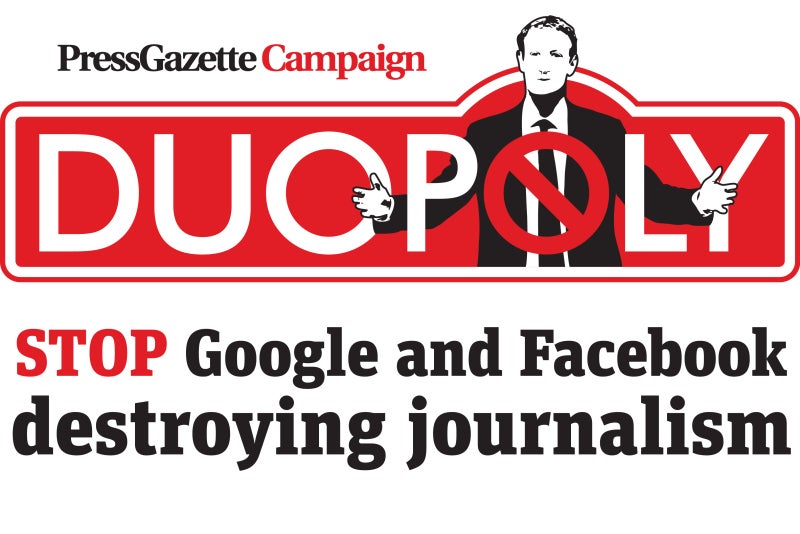
The UK competition watchdog has opened an investigation into the dominance of Facebook and Google in the digital advertising market and is inviting submissions on the issue.
The Competition and Markets Authority will look at whether competition in the digital advertising market is “distorted” by the tech giants.
It said the study will look at “the sources of any market power, the way they collect and use personal data, and whether competition in digital advertising is producing good outcomes for consumers”.
CMA chairman Andrew Tyrie said: “Much about these fast-changing markets is a closed book to most people.
“The work we do will open them up to greater scrutiny, and should give Parliament and the public a better grip on what global online platforms are doing.”
The CMA study follows the Cairncross Review into the sustainability of the UK news industry which called for the watchdog to take a closer look at the digital ad market and identify whether it is working and what remedies, if any, are needed.
The Furman Report into digital competition also urged a review of the ad market, which was backed by Chancellor Philip Hammond. He said the CMA’s “expertise and information gathering powers make it uniquely placed to shine a light on this sector”.
Press Gazette launched its Duopoly campaign, calling on Facebook and Google to stop destroying journalism and pay more to publishers, in April 2017.

The CMA study will focus on both search and display advertising, which the watchdog said are dominated by Google and Facebook respectively and which “make up by far the largest proportion of UK advertising expenditure”.
In its statement of scope for the study, the CMA said: “We propose to examine the extent to which platforms’ market power might distort competition in digital advertising, as well as concerns around transparency and conflicts of interest in the intermediation of advertising.
“This is a highly-complicated market and the focus of our work in this theme will be on investigating those concerns that are most likely to lead to bad outcomes for consumers.”
The dominance of certain platforms “could limit entry and competition from other providers, harming consumers by reducing choice and innovation over time,” it went on.
The CMA study will not examine the Duopoly’s effect on the sustainability of journalism in the UK, which was the remit of the Cairncross Review.
“However, we anticipate that aspects of our work will help inform this debate, notably our assessment of the share of advertising revenues that go to content providers as opposed to intermediaries,” the CMA said.
The News Media Association, which represents national, regional and local news organisations in the UK, called the CMA’s announcement a “very welcome development”.
“For years, the tech giants have been exploiting news media publishers’ content online while contributing next to nothing back into journalism, and it is now time for this to be urgently corrected.”
If the watchdog finds evidence to back up its concerns, it could pursue interventions to improve “transparency and oversight for digital advertisers and content providers”.
It could also limit large platforms’ ability to exercise market power by creating a new regulatory regime, give consumers better protection and transparency over how their data is being used, and increase competition through data mobility, open standards and open data to reduce barriers to entry and promote new business models.
The CMA is now calling for representations, including whether it should launch a full market investigation, to be made by 30 July.
It said it will publish its market study report setting out its findings and any proposed actions by 2 July next year.
Picture: Pixabay
Email pged@pressgazette.co.uk to point out mistakes, provide story tips or send in a letter for publication on our "Letters Page" blog

